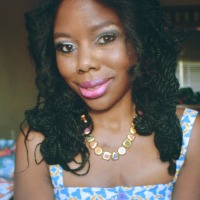
Christy Hyman (@activistHistori) is a Phd student in History/Digital Humanities at the
University of Nebraska Lincoln. Christy attended the 2017 DLF Forum with support from an ARL+DLF Forum Fellowship.
I knew my time at #DLFforum would be affirming, instructive, and transformative. The 2017 meeting did not disappoint. I would like to take the time to reflect on my observations at a session titled, “Dude Code, Ladies Coordinate: Gendered Labor in Digital Scholarship” presented by Rafia Mirza and Maura Searle.
I walked into a packed room and the session had just begun. The seats were all filled so I made myself at home by sitting on my cushiony laptop bag on the floor. The audience was taking in every word and watching every slide, jotting things down, and live tweeting. The topic of importance at this session was the invisible, ignored, and devalued forms of labor within digital scholarship.
Questions posed within the twittersphere ran the gamut like “who does the required emotional labor, often without authority?” from Laura Miller. Other responses were more visceral as one tweet indicated that “Dudes Code, Ladies Collaborate is on the one hand, deeply resonant, on the other hand enraging.” Yasmeen Shorish opined that the result of gendered constructions of labor in the workplace required “managing up, down, and sideways.” Katherine Auhnberg tweeted, “Labor is valuable no matter who performs it, particularly from precarious populations- adjuncts, grad students, etc.” Ruth Kitchin Tillman tweeted, “DH partnerships expose a lot of library labor, research, pedagogy design, teaching, tool design.” All of these observations were valid and needed.
The very integral, yet “unseen” work are additional tasks that require extra time, planning, and energy. If we consider the importance of this work we might want to assess if such work is credited(in every possible way) appropriately. It is important to consider the implications of the often feminized tasks of coordinating as opposed to the masculinized work of coding as practitioners strive to make digital humanities spaces more equitable, inclusive, and fair.
Today’s universities and libraries purport to strive to provide their connected communities with a breadth of scholarship that represent the social, cultural, and political experiences that define today’s globalized world. For scholars engaged in digital work the histories of oppression, the politicized tensions that exist in society stemming from legacies of enslavement, genocide, and other forms of societal violence compel the university/library communities to create spaces that do not replicate the oppressions so rampant in the world today. The conversations and analysis that resulted from this session will certainly intervene to help digital scholarship spaces become more inclusive and affirming.
I am very happy I attended. Thank you Rafia and Maura.
